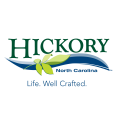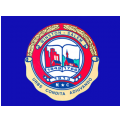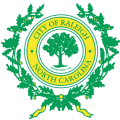For our 2024 rankings, the research team at Nursing Schools Almanac collected data on nearly 3,000 nursing schools and campuses throughout the United States. We evaluated each school on three dimensions:
North Carolina
We've organized a comprehensive list of North Carolina nursing schools. Below you'll find information on specific nursing programs such as LPN diplomas and ADN, BSN, and MSN degrees. You'll also find a profile of nursing education and careers in each major North Carolina city.
North Carolina school overviews
North Carolina nursing programs and careers
City-specific information
The first step towards a career as a licensed practical nurse is enrolling in an LPN diploma program at one of North Carolina’s community colleges or vocational schools. These programs are fairly brief, typically requiring twelve months of fulltime study. The North Carolina Board of Nursing has approved more than forty LPN diploma programs across the state, providing students a broad menu of options from which to choose.
Employment of registered nurses is projected to grow seven percent over the next decade, faster than the overall job market. Many aspiring RNs choose to enroll in an associate degree program so that they can enter the workforce quickly. An ADN curriculum is less time-consuming than a bachelor of science in nursing (BSN) degree, and it adequately prepares students for the National Council Licensure Examination for Registered Nurses (NCLEX-RN) and subsequent employment.
For our 2024 rankings of prelicensure BSN programs, the research team at Nursing Schools Almanac compiled an extensive database of student performance on the National Council Licensure Examination for Registered Nurses (NCLEX-RN). Aspiring registered nurses in the United States must pass this examination before they may commence practice. Thus, student performance on the NCLEX-RN exam provides an excellent benchmark for comparing the relative quality of bachelor’s degree programs.
Charlotte’s aspiring nurses can achieve licensure through a variety of education pathways. Each pathway is specific to one of the four major nursing roles.
Certified nursing assistants (CNAs) attain licensure through a brief certificate program. CNA certificates are most frequently offered at community colleges, although several private schools also offer these programs. The CNA role is very popular in Charlotte; over 7,000 CNAs are currently employed in the metropolitan area. This is primarily due to the relatively small time and financial investment required to become a CNA.
For our 2024 rankings, the research team at Nursing Schools Almanac collected data on nearly 3,000 nursing schools and campuses throughout the United States. We evaluated each school on three dimensions:
The Hickory, North Carolina, metropolitan area – locally dubbed the “Unifour” – is home to more than 7,000 nursing professionals. Some of the most common roles are registered nurse (RN), licensed practical nurse (LPN), and certified nursing assistant (CNA). Most nurses in Hickory earned their degree or diploma at a local college or university. The region is flush with top nursing schools, including Lenoir-Rhyne University, Caldwell Community College and Technical Institute, Catawba Valley Community College, and Western Piedmont Community College.
Several large healthcare providers, including Novant Health and the UnitedHealth Group, are looking to expand their nursing teams in Winston-Salem. They promise competitive salary packages to their employees, so aspiring nurses may want to learn more about the area’s nursing sector.
Winston-Salem’s nursing workforce may be broadly categorized into four roles. Each one requires a different set of skills and qualifications, and each role carries distinct compensation.
Advanced practice registered nurse
Students can attain a variety of nursing qualifications at accredited schools in Wilmington. Each type of qualification prepares students for a particular nursing role. Some nursing roles also require successfully passing a national standardized exam. The time and financial investment required varies widely by nursing role.
Certified nursing assistant
Raleigh has four distinct nursing roles, each of which requires a unique set of qualifications. We’ve briefly profiled each role and its education pathways below.
Certified nursing assistant
The nursing profession in the Greensboro / High Point area can be broadly divided into three distinct roles. Each nursing role carries a unique mix of work duties, educational requirements, and compensation.
Certified nursing assistant










